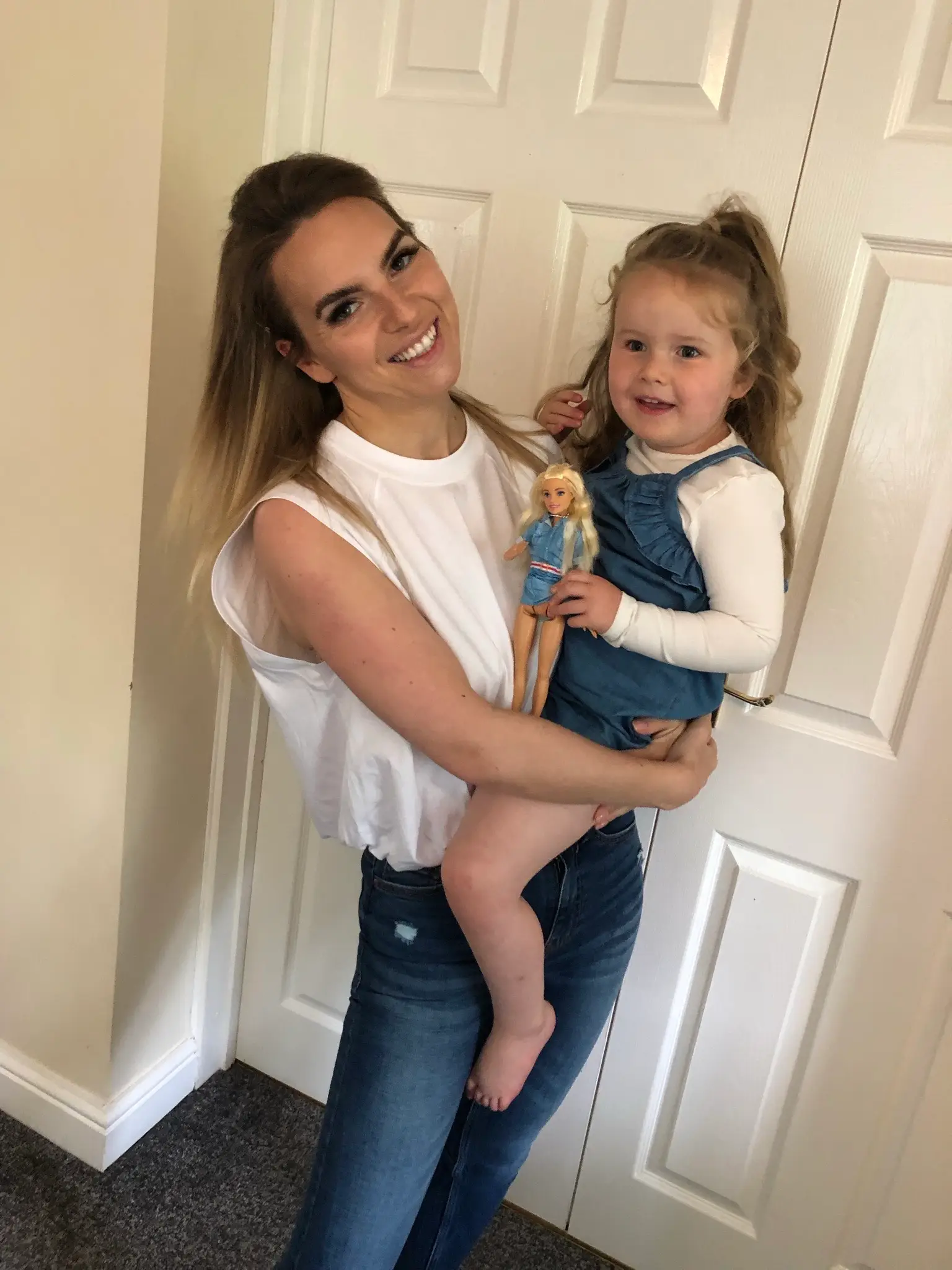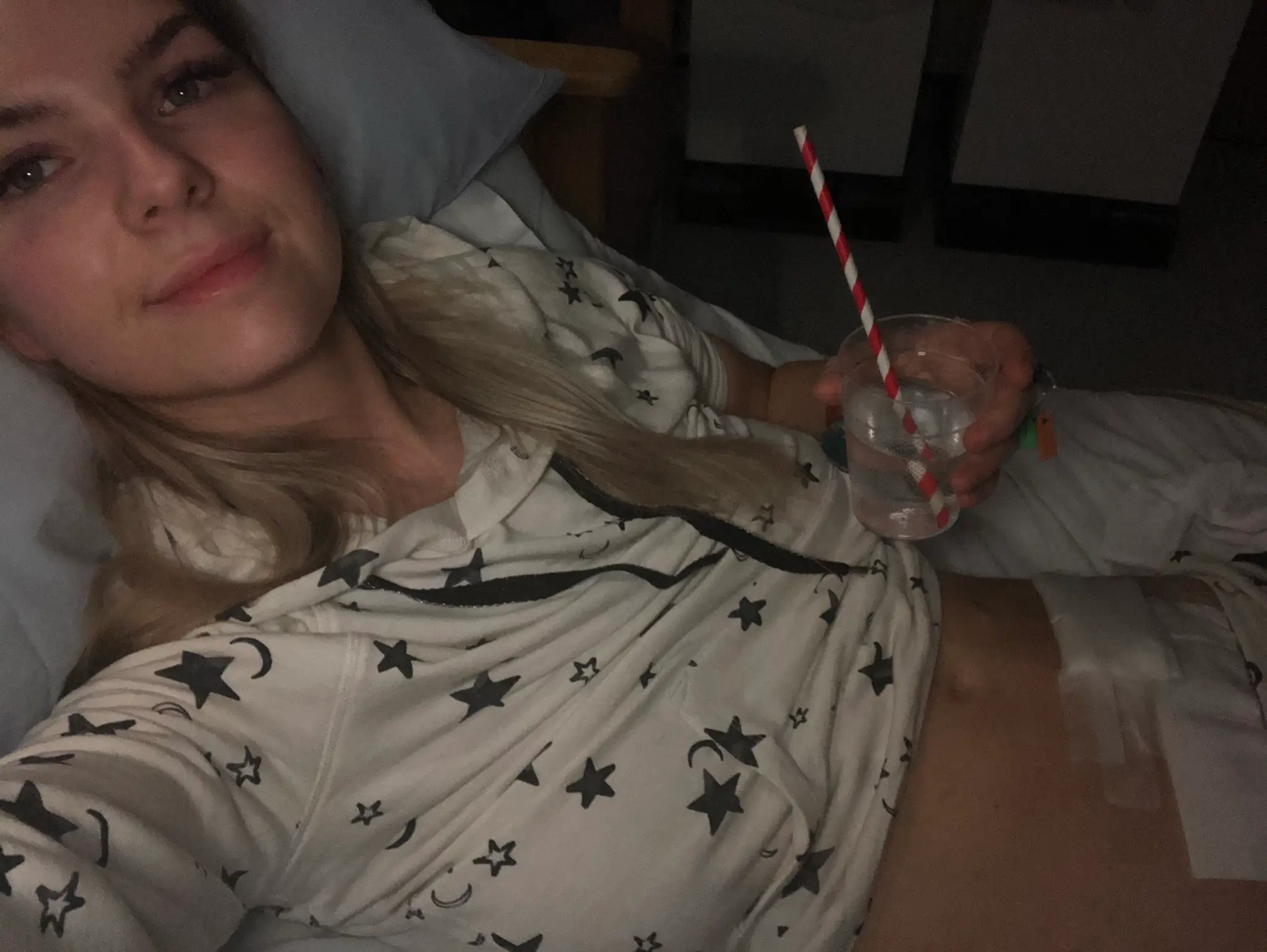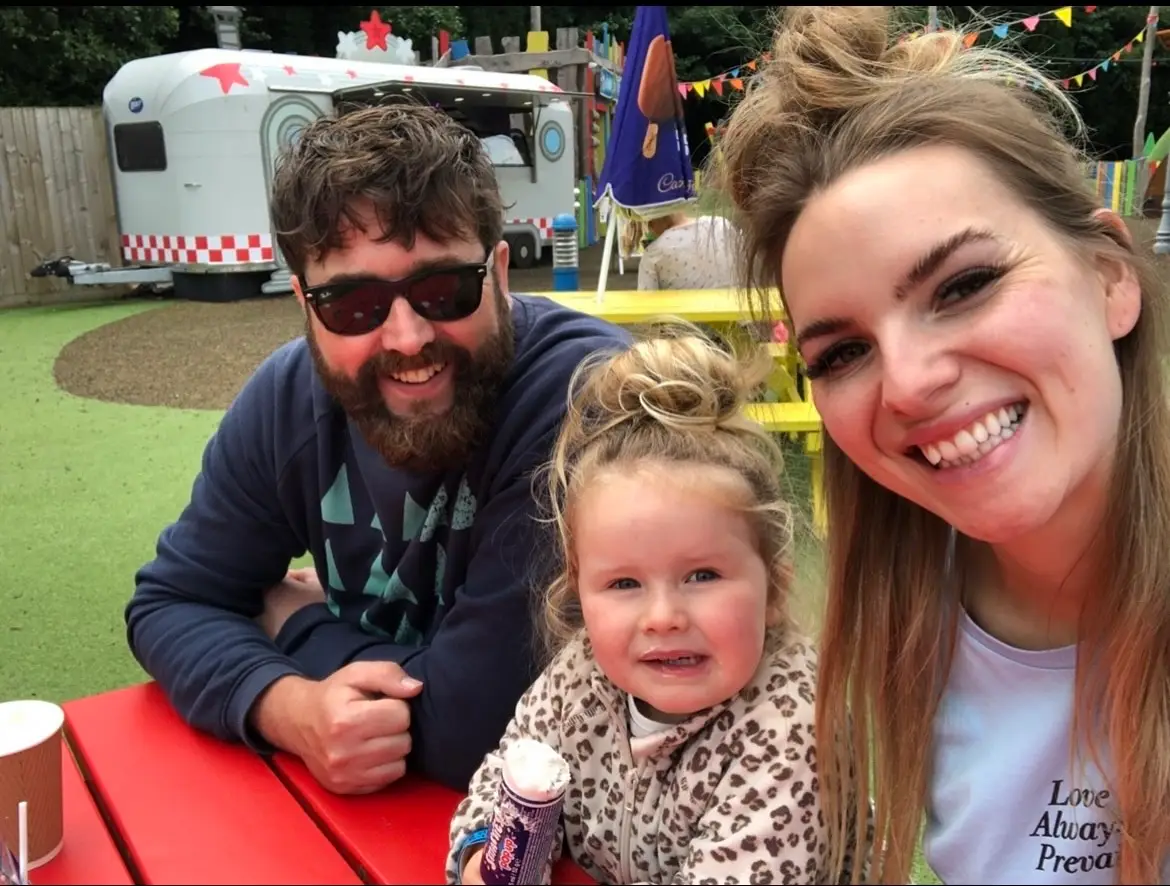
The menopause might be typically associated with middle-aged women, but in the UK as many as one in 100 will experience it before the age of 40.
And it's not just hot flushes and mood swings; for some women, the consequences can be devastating.
Sophie Davies was thrown into the menopause after having a full hysterectomy due to complications linked to cervical cancer at the age of 31.
The mother-of-one tells Tyla what happened since has left her feeling 'totally forgotten' after experiencing a 'lack of care and understanding' from healthcare professionals.
Advert

"Four years ago I was diagnosed with cervical cancer," Sophie, now 33, tells Tyla. "While I never had recurrence of cancer, I had constant infections, so after a couple of years, my consultant said I would need a full hysterectomy.
"Before the operation, my consultant told me I would go into menopause, and recommended I go on hormone replacement therapy (HRT). I understood, but in reality when I had the hysterectomy and was discharged from hospital, I had no consultation and no HRT.
"A few weeks passed and emotionally, I was in a horrendous place. I felt really depressed. I'd been through a lot and I'd lost my fertility, so I knew I had reasons to feel sad - but I just felt so depressed. I called my GP and this is how I first accessed HRT."

Although Sophie was prescribed the medication she desperately needed, she says that the dosage she had been given was more suited to an older woman who was going through the menopause naturally, as opposed to surgically.
"I only realised this after I had been on HRT for a month or so," says Sophie. "I was still crying most days, I was snappy and angry, my concentration was terrible - I just wasn’t coping at life."
Sophie sought the advice of a private menopause specialist, who wrote a letter to her GP advising them of the correct amount of HRT she needed.
But she was about to hit another hurdle:"Before speaking to the private specialist I had signposted myself for cognitive behavioural therapy (CBT) and mental health services. I told her I felt like I was losing my mind like I had lost myself.
"But because I wasn’t considering taking my own life, they said they couldn’t help me any further. It was already such a big step to accept that I didn’t feel well in my mental health and to reach out.
"I felt completely lost and on my own and only being in my early thirties, none of my friends could relate."

Sophie was eventually prescribed the correct treatment, but in January she was hit by the devastating HRT shortages.
"Upping my oestrogen really helped me, and things were great for a while, but in January when I went for my repeat prescription, they didn't have my medication," she says.
"I felt really panicked because I knew I was fully reliant on it and I knew how depressed and anxious I was before. I was so scared of going back to that point. At that time, the pharmacy gave me one bottle of HRT which would last 14 days.
"I then started on a gel sachet, which has been OK, but now I've been contacted to say it's changing again to a patch."
More than 1 million women in the UK use HRT. Many women take a combination of oestrogen and progestogen in various different forms such as tablets, patches, gels and creams.
It works by replacing the hormones your body has stopped producing.
The reason for the shortage is mainly blamed on an increased demand as well as supply complications, but the government’s patient safety minister Maria Caulfield has said that supply should be "back on track" around June. Meanwhile, health secretary Sajid Javid has recently appointed a HRT supply tsar, Madeleine McTernan, to tackle the crisis.

But for Sophie, accessing HRT is affecting her both mentally and financially. Despite the government promising to cut to the cost of HRT prescriptions to one annual charge a year, Sophie is still paying £9.35 for every prescription, some of which last her only two weeks. It's expected that the scheme will not be implemented now until April next year.
"Because of everything that I’ve been through I get really bad health anxiety anyway, and any time I do feel anxious I'm worrying and asking myself 'is it the HRT not working properly?'
"[Constantly changing the HRT] makes me so anxious. Different forms work better for different women, and I just don’t want other women going through this because it is hell.
"At one point, I got six months of HRT for the £9.35 prescription. This year, I still paid it but for 14 days' worth, then another £9.35 for the new gel and now I'll need to pay for another prescription for the patch."
Sophie believes better guidelines and up to date training is key to combatting the 'lack of understanding' about the condition.
"I think people seem to have a misconception that the menopause is a bit of a hot flush. But it’s not, it’s insomnia, it’s anxiety - I feel like my personality changed," she says.
"I get angry about it because I've made all these decisions, I've paid privately at £100 per session, I've researched, then I've gone to my GP with my research. It's exhausting. After everything I've been through why am I still having to fight for appropriate care?
"As a young woman going through the menopause, I feel forgotten."
For help, support and advice, you can contact The Menopause Charity as well as Mind.
Topics: Health, No Article Matching